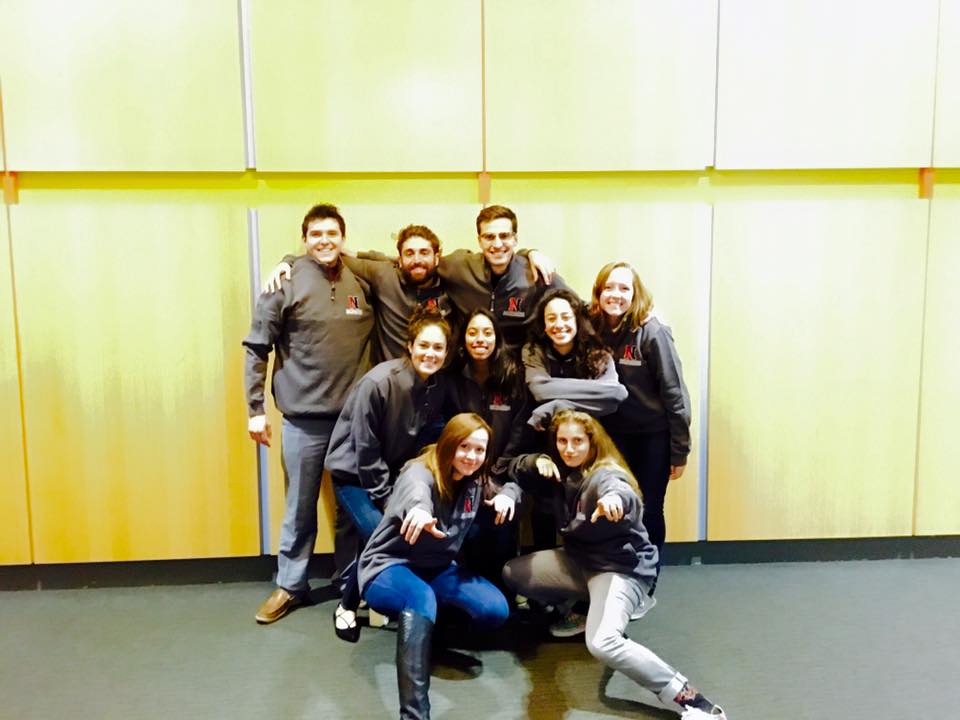By Naomi Stapleton, news correspondent
Student speakers from Northeastern University (NU) science organizations including the Marine Biology Club and the American Chemical Society will present “TED-style” to discuss issues like cancer research and tissue regeneration.
The event, titled NU Talk 2016, will take place on Jan. 28 at 6:30 p.m. in the Raytheon Amphitheatre of the Egan Research Center.
The second NU Talk, organized through the College of Science, focuses on expanding scientific collaboration on campus. Oliver Cervantes, the program coordinator, says the event will take the form of a passionate conversation with a general audience, making scientific developments and ideas more accessible to students of all disciplines.
“NU Talk aims to showcase [Northeastern students’] talents and efforts in furthering scientific progression in today’s rapidly changing society,” Cervantes said.
Cayman Somerville, president of NUScience Magazine, will discuss scientific journalism’s changing role in the digital age.
“About a century ago, scientists were considered the gatekeepers of science news,” she said. “Science was being communicated by scientists to scientists.”
Now, the power to share and report news is in the hands of the public as well.
“There are so many different platforms and ways that information is being disseminated to the public. Journalists are no longer as important, and anybody can be a journalist,” Somerville said.
Luke Shin, a Pre-Dental Student Association ambassador, will highlight the uneven distribution of oral healthcare access, specifically focusing on the Wampanoag tribe of Martha’s Vineyard.
“I want to send a message to students who are interested in pursuing their careers in dentistry that there are plenty of opportunities at Northeastern and lots of work to be done with oral public health,” Shin said.
Once a month, Shin and other pre-dental students travel with Harvard professor Dr. Brian Swann’s team to the island to treat conditions including cavities and stained teeth. The tribe’s limited access to care coupled with low dental literacy is particularly dangerous because “oral health is directly related to digestive health” and thus overall well being, Shin said.
Asama Lekbua, representing the Biology Club and the Society of Asian Scientists and Engineers, will discuss her findings from research on the human gut microbiome. She says there is often a “brick wall” between scientists and the public, so she is glad for this opportunity to explain the details of her work at the Antimicrobial Discovery Center in an enthusiastic and collaborative setting.
“My team and I were looking at a specific bacteria that produces GABA, which is a chemical in your body that inhibits your nervous system,” Lekbua said. “If you have more of these bacteria that produce GABA, you’ll report that you were less anxious, in a better mood and overall happier.”
She added that this observed link means the scientific community is one step closer to the development of antibiotics or probiotics that could eventually regulate mood.
The NU Talk organizers also hope the presentations will spark conversation about Northeastern’s role in the future of science. Kristian Teichert and Sam Kaplan, biochemistry majors, are both involved in Northeastern programs working to expose students to topics that they are unlikely to experience in high school.
“We criticize high school practices that may be discouraging students from thinking in the right way about STEM,” Kaplan said. “Our programs can’t completely solve that, but we try to have activities that promote critical thinking in the sciences.”
Teichert and Kaplan emphasized that although there are many resources for building STEM and pre-college education, there is not yet enough awareness of available programs.
“By getting more people involved in science and helping communicate that to the general public, we can hopefully discuss and prevent social issues with scientific literacy,” Teichert said.
Photo courtesy of Annie Bryant















